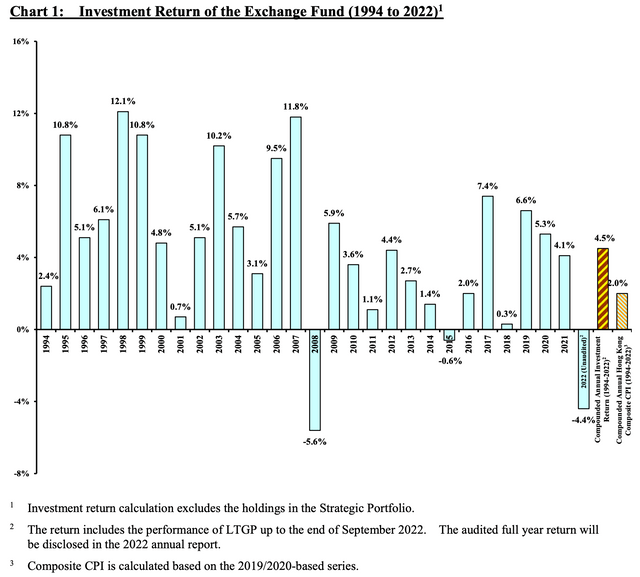
Hong Kong’s Exchange Fund, which is used to back the Hong Kong dollar, posted a record loss of HK$202.4 billion ($25.8 billion) in 2022 as interest rate hikes led to massive selloffs in the global bond and equity markets.
The Exchange Fund lost HK$80.7 billion ($10.3 billion) on its portfolio of domestic and foreign stocks, while its shortfall on bonds stood at HK$53.3 billion ($6.8 billion), the Hong Kong Monetary Authority (HKMA) revealed on Monday.
HKMA is the key manager of the Exchange Fund, which is under the control of the financial secretary and invests in equities, bonds, foreign exchange, as well as other securities and assets.
At a loss of HK$202.4 billion, the fund suffered a negative investment return of 4.4% in 2022 — the worst since 2008 when the Global Financial Crisis resulted in a negative investment return of 5.6%.
“Financial markets experienced an exceptionally volatile year. The Russia-Ukraine conflict at the beginning of the year sent energy and commodity prices significantly higher, while the ongoing pandemic situation further disrupted global supply chains and caused inflation to soar in major economies, prompting major central banks to tighten their monetary policies aggressively,” said Eddie Yue, Chief Executive of the HKMA.

“Looking ahead in 2023, financial markets will continue to face significant uncertainties and asset prices are expected to remain volatile,” said Yue. “The monetary policies of major central banks will continue to dominate the investment outlook, and financial markets will pay close attention to peak policy rates set by major central banks.”
The heavy losses last year came even as the Exchange Fund registered a gain of HK$76.4 billion ($9.7 billion) in the fourth quarter. In comparison, the fund booked an adjusted investment income of HK$191.9 billion ($24.5 billion) in 2021.
